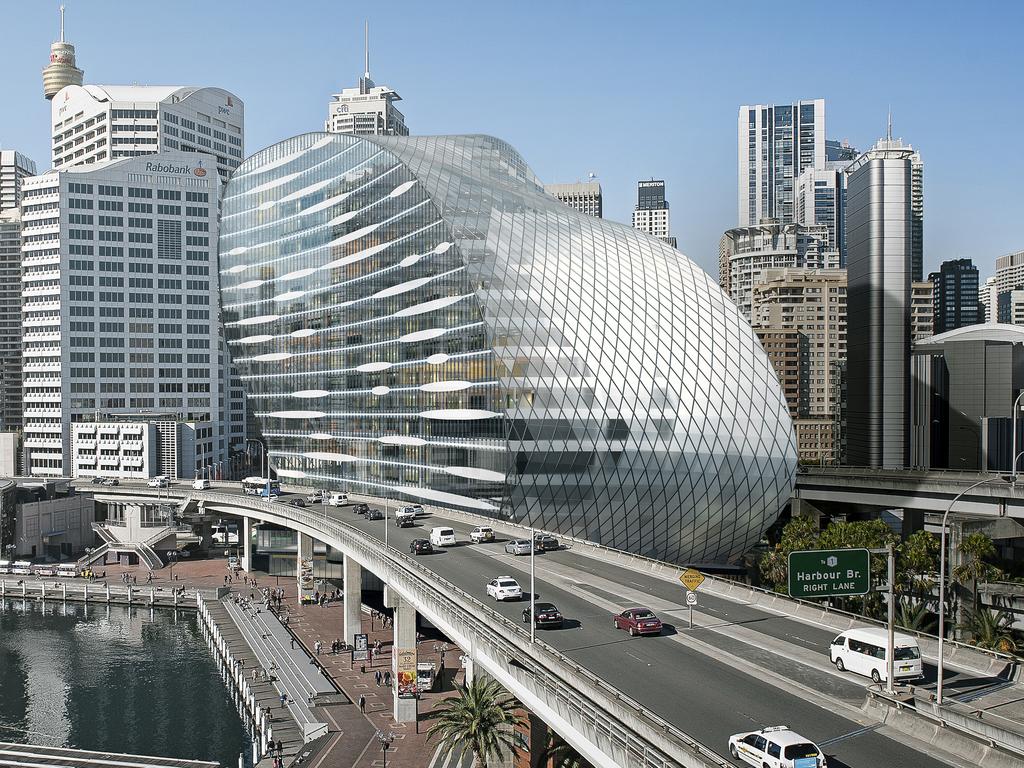Australian building giant Probuild collapses after racking up losses
Eighteen building businesses, including one of Australia’s major construction companies Probuild, have dramatically collapsed.
A total of 18 building businesses, including one of Australia’s major construction companies Probuild, have collapsed after their South African parent company pulled all its financial support.
Deloitte has been appointed as administrators to handle the many businesses folding, which are part of the WBHO Australia Group, while 750 employees and thousands of contractors are also impacted, with many padlocked out of sites across the country.
It came after parent company, WBHO South Africa, announced is was withdrawing any financial assistance after injecting millions to prop them up as it grappled with the government’s “hardline” stance with handling the pandemic.
WBHO Australia had boasted an annual revenue of $1.4 billion and has 18 major commercial and public sector projects in development, which now have a cloud hanging over them.
These include 13 projects in Victoria, three in New South Wales, one in Queensland and one in Western Australia.
Stream more business news live & on demand with Flash. 25+ news channels in 1 place. New to Flash? Try 14 days free now >
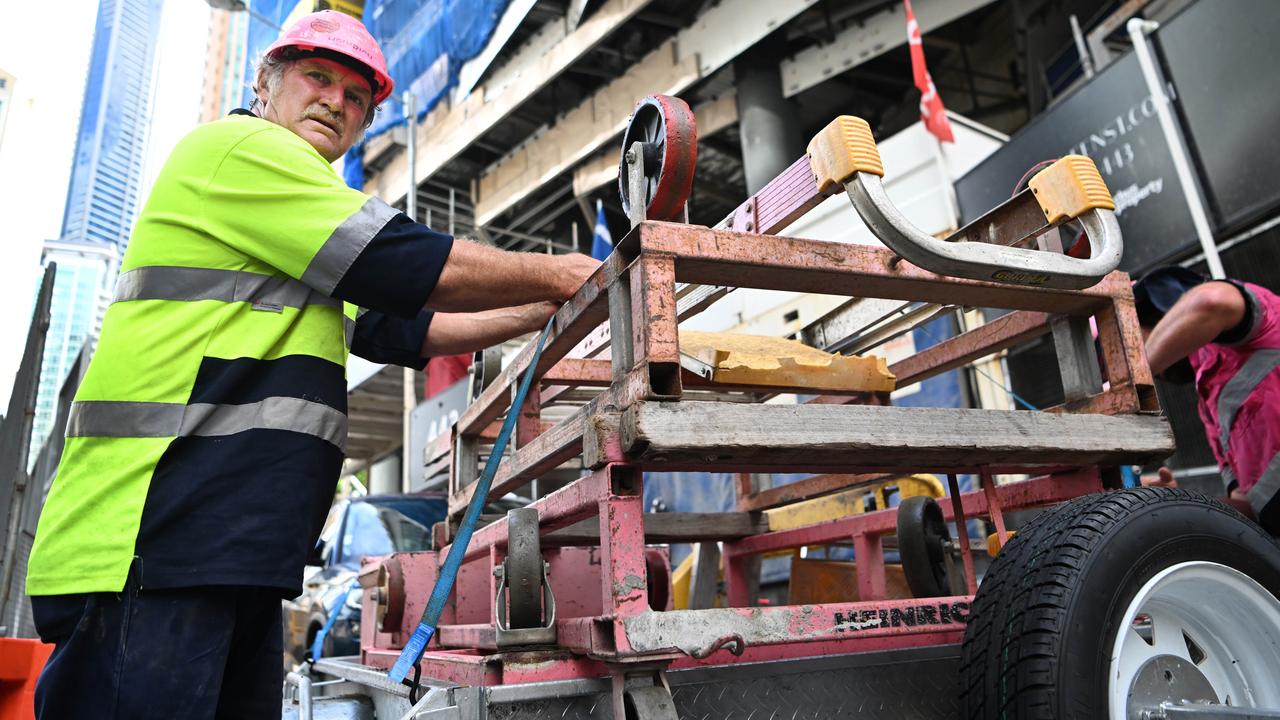
Probuild in particular has been working on a number of high profile projects around the country worth billions.
The parent company said it had bailed out the Australian arm of the business with up to $183 million over the past four years.
It added that the injection of funds had “severely depleted” its resources and the losses from the Australian arm would have a “significant” effect on WBHO’s financial performance.
“With effect from 22 February 2022, the company... will no longer provide financial assistance to (Probuild holding company) WBHO Australia,” WBHO said in a statement.
It blamed Covid-19 restrictions and lockdowns for some costly project delays.
“The Australian government’s hard-line approach of managing Covid-19 through a combination of border restrictions, snap lockdowns and mandatory work-from-home regulations for many sectors, has had a considerable impact on property markets as well as other industries such as the leisure industry,” WBHO said.
“Of particular concern is the project delivery capability of the business which has been negatively affected by unplanned Covid-19 restrictions, the contractual environment and the increased difficulty in raising guarantee facilities necessary to secure new work.
“The protracted effect of COVID-19 has delayed any meaningful economic recovery and procurement activity in Australia.”
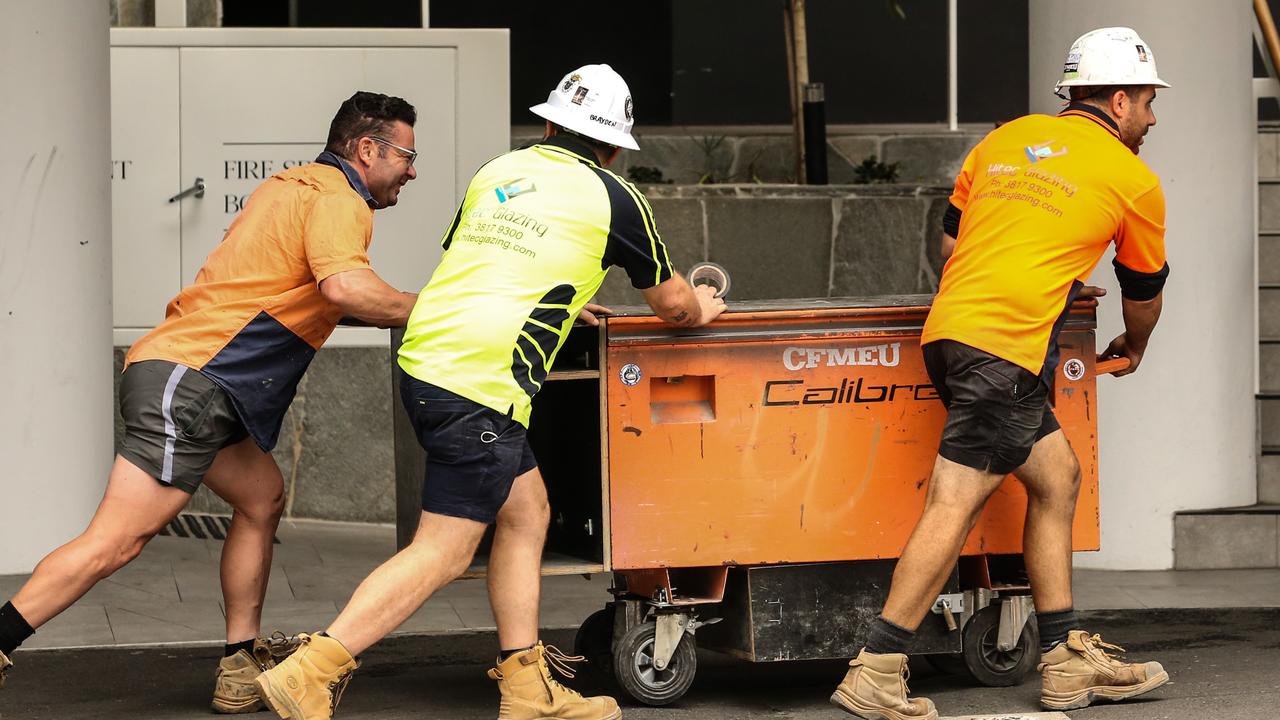
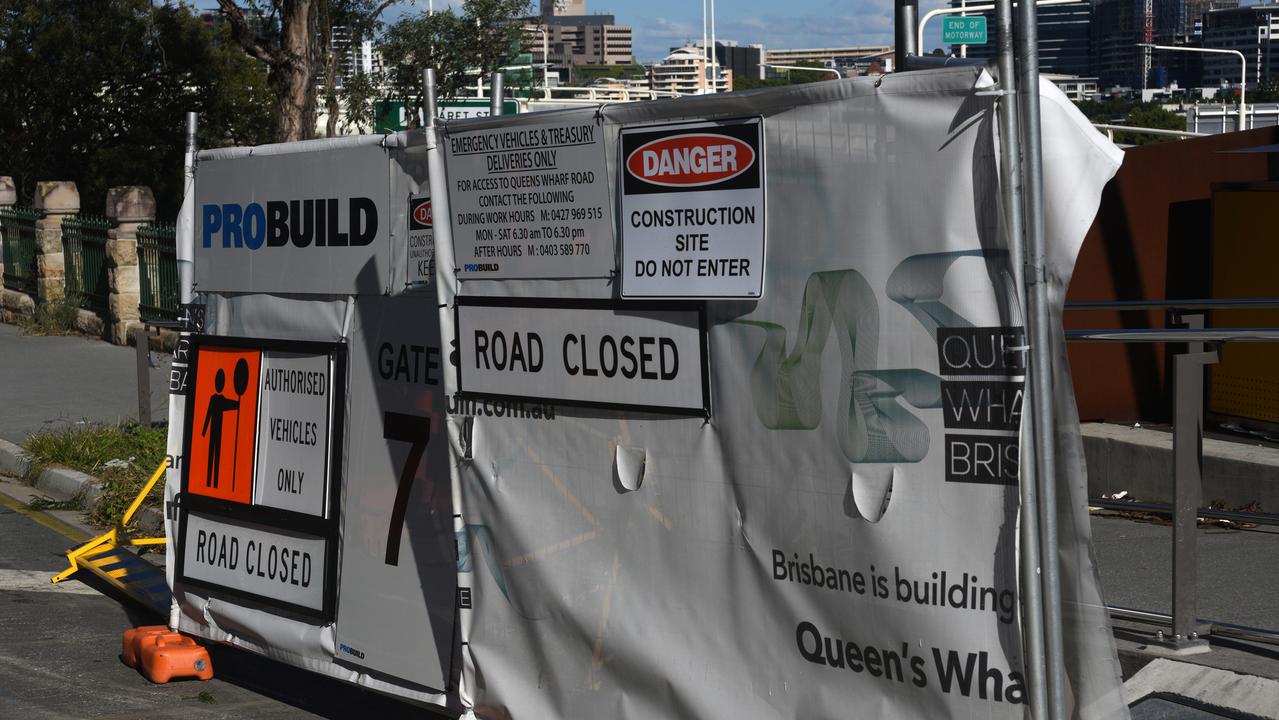
Probuild confirmed the local arm of the business was “abruptly informed” by its parent company that support was being withdrawn.
“We are caught up in a set of circumstances not of our making,” a Probuild spokesman said.
“We are working closely with the administrator on a number of plans to protect our clients, subcontractors and employees.
“The Probuild brand is strong and we intend to keep it that way. We have several options for raising the necessary capital to continue as a premium Australian building company. These will all be pursued.”
Administrator Deloitte has said it is looking to secure a new owner for the business and will be “commencing a sale and recapitalisation process” as a cloud hangs over dozens of Probuild projects around Australia.

On Wednesday evening, tradies were called off worksites across the country with workers seen pulling equipment and tools from project sites.
Tradies were photographed collecting tools from Cbus Property’s 443 Queen St project in Brisbane.
In Melbourne, at the Far East Consortium’s West Side Place project site, which is a $2 billion, four-tower development, subcontractors were seen driving in their private vehicles to collect tools and personal gear.
The shocking collapse reportedly came after a disastrous high-rise project dragged the company into massive debt.
Probuild raked in $1.3 billion in revenue and made $4 million profit last year, but the 443 Queen St project in Queensland, which involved high-quality apartments, has haemorrhaged as much as $120 million.
The property features 264 luxury residential apartments, but with delays and technical issues it is already well behind its late-2021 completion date.
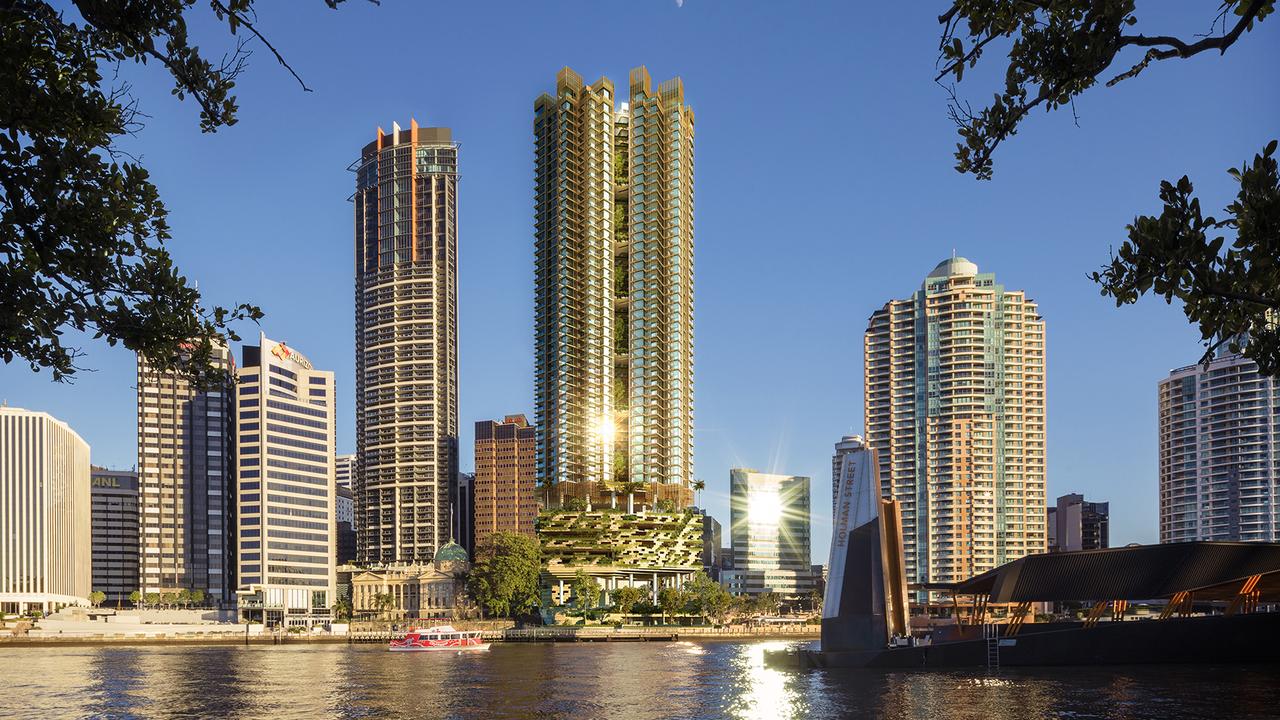
Originally heralded as Brisbane’s first premium subtropical residential tower, with views across the city, the building’s future now hangs in the balance.
The riverfront complex has cost the company’s Queensland arm, PCA QLD, more than $28 million, with sources estimating it could be up to $120 million.
Probuild’s parent company had also raised concerns about the “troublesome” Western Road Upgrade project in Melbourne.
It had forecast a loss of $161 million by June last year and WBHO were forced to fork out$141 million to ensure completion.
Probuild Constructions (Aust) reportedly injected $15 million into the company last year as part of a recapitalisation to combat the Queensland division’s losses.
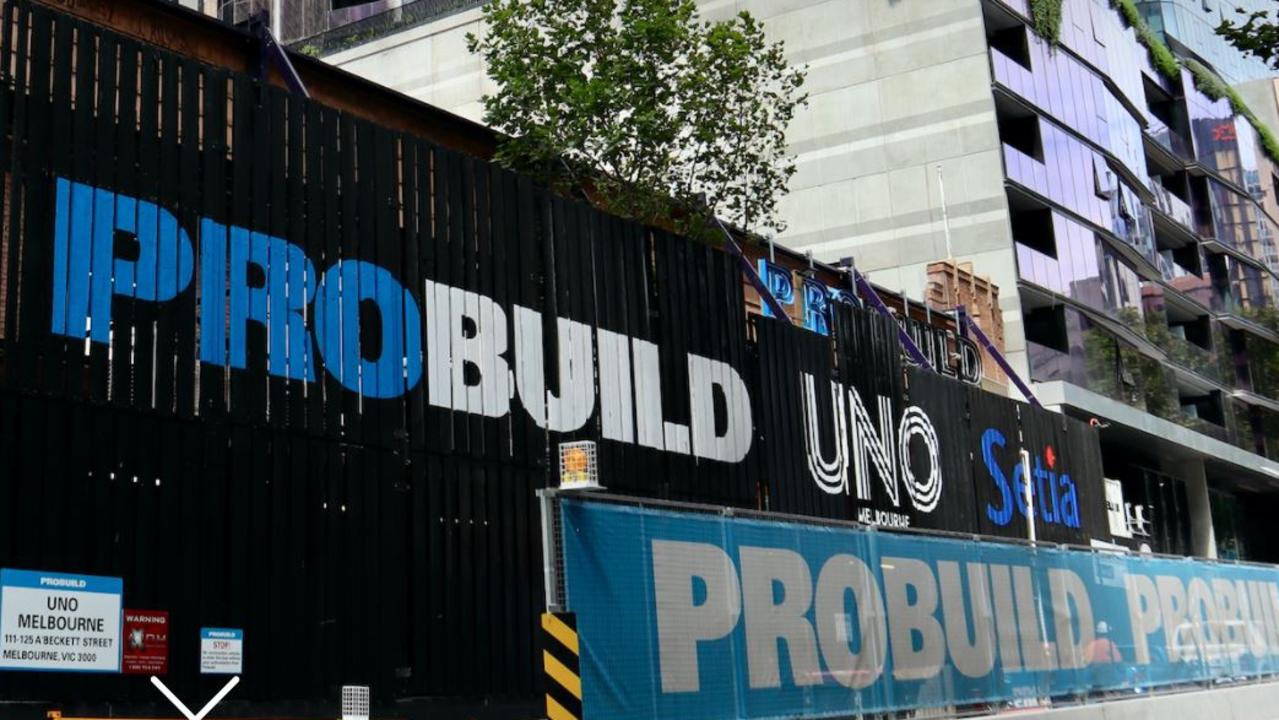
Deloitte’s lead voluntary administrator Sal Algeri said options will be assessed to preserve value, while it will also engage closely with creditor groups and other stakeholders, including clients, employees, unions, suppliers, contractors and subcontractors.
“The Covid-19 pandemic has created challenging trading conditions for many businesses, and for WBHOA, which has also been impacted by certain loss-making projects,” he said.
“Our immediate focus will be to undertake an urgent assessment of the entities’ financial positions and work with key stakeholders to stabilise the business and projects where possible.”
The loss of Probuild will send shockwaves through the construction industry as it was one of only a handful of major builders, such as Multiplex, Lendlease, CPB and John Holland, that can complete large scale projects.
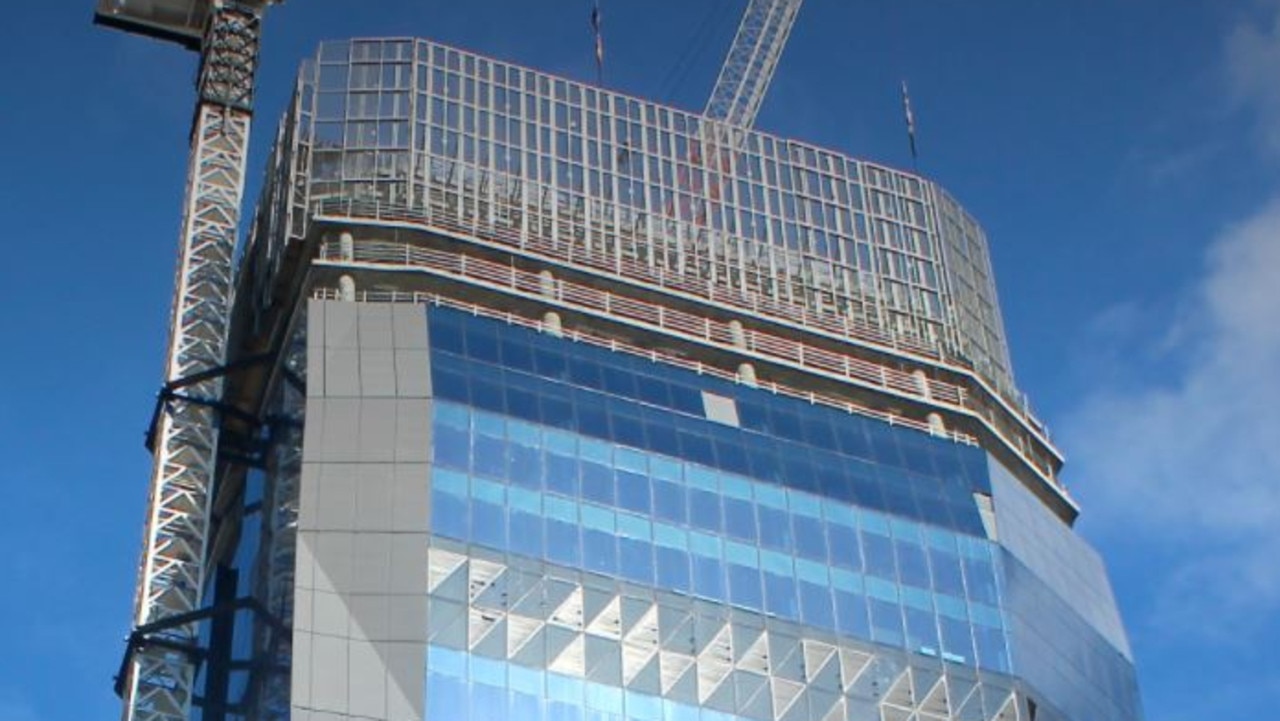
Probuild’s current list of projects include the Victorian Police headquarters, which is 46 levels high, pharmaceutical giant CSL’s global headquarters in Melbourne, the Exchange at Curtin University, alongside the Greenland Centre, which is Sydney’s tallest residential building.
Other projects include a 28 level building which will be Melbourne’s tallest vertical campus for Victoria University, a 65-level residential building in Melbourne called UNO and Caulfield Village, which was to feature multiple campus style towers, delivering over 430 Build-To-Rent apartments.
In Sydney, Probuild was also in charge of a landmark project in Darling Harbour, a 30-storey building comprising a hotel and serviced apartments, state-of-the-art IMAX Theatre, retail and entertainment spaces and 10,000m2 of renewed and enhanced public domain.
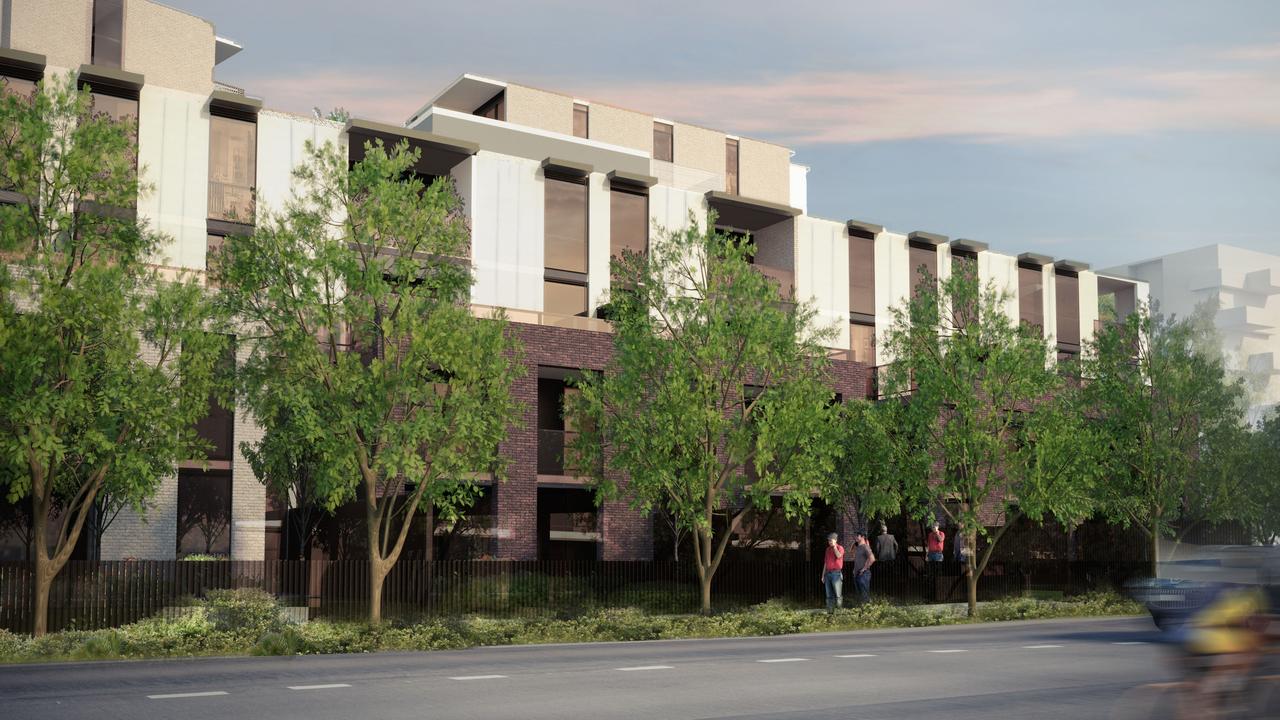
While Probuild directly employs just over 750 staff, there are fears for the impact on thousands more working as subcontractors.
One worker told The Australian that people had been left hundreds of thousands of dollars out of pocket due to unpaid bills.
“It is going to run into the millions, what tradies are owed,” they said.
Last year, the federal government blocked the $300 million sale of the company to China State Construction Engineering Corporation citing national security grounds.
Before the collapse, WBHO had flagged that it would withdraw Probuild from the Queensland and WA markets by the end of the 2022 financial year.
“It was the company’s intention to see some decline in the order book as we reduced our exposure to high-risk projects,” it told the Australian Financial Review on Wednesday.
“However, sourcing acceptable projects has been made more difficult with procurement activity and the number of available projects being impacted by Covid-19.”
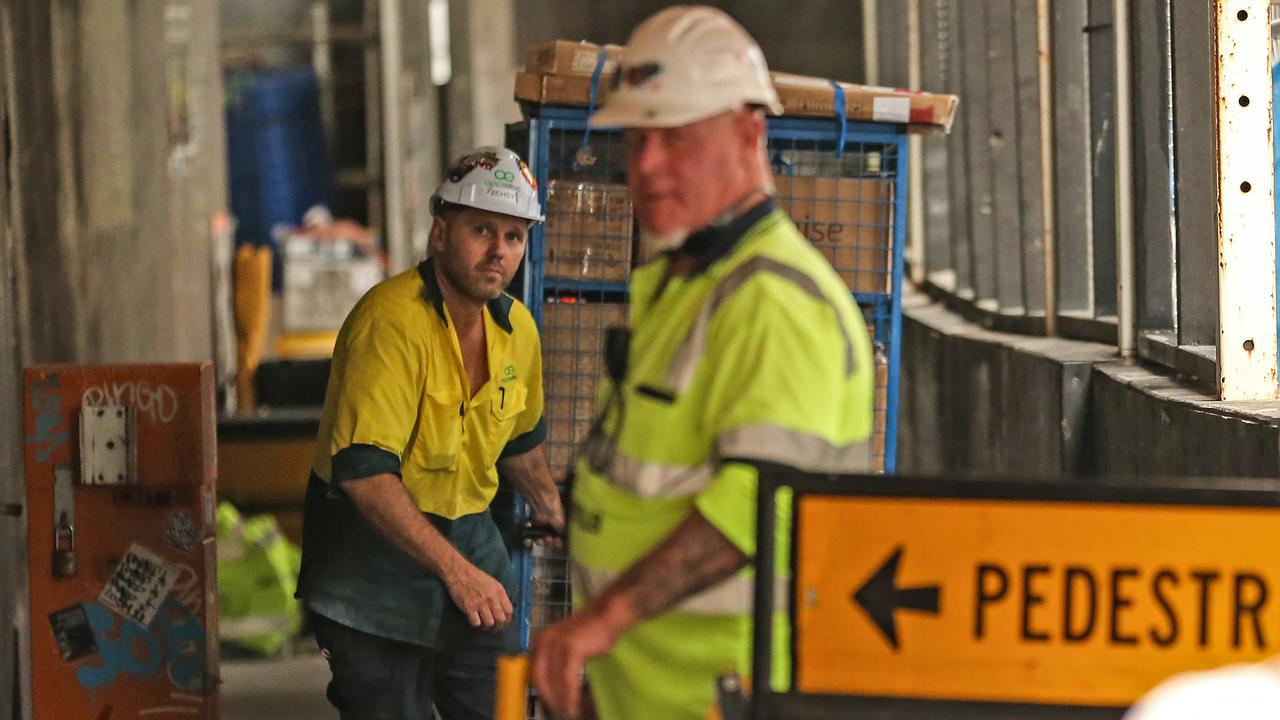
The South African parent company also complained about regulators blocking its efforts to sell the Australian arm as adding to the company’s demise.
“During 2020, the company entered into negotiations with a third party to sell the Probuild business. This transaction was progressed to agreed terms by December 2020, but approval from the Australian Foreign Investment Review Board was not obtained,” WBHO said.
“Following on from this, WBHO implemented its strategy to downsize the business, and considered other sales options, which proved fruitless due to concerns potential acquirers had as to the impact of the regulatory approach to Covid.”
The South African company’s share price plunged more than 27 per cent after the collapse was revealed.


